- Home
- Roy J. Snell
Johnny Longbow Page 9
Johnny Longbow Read online
Page 9
CHAPTER IX A MOVING ISLAND
"They're coming!"
Johnny Thompson thought he heard the beating of Faye Duncan's heart asshe whispered these words in his ears.
They lay close together on the snow against a little rise of land. Fromthis place they could see nothing before them. A faint crackling soundwas all that told them that a moving island of brown, a great herd ofcaribou, was moving up the narrow valley and would, within the space of aquarter of an hour, be abreast of them and within easy bow shot.
Their position was not without its element of danger. Johnny's heartmissed a beat at the thought. The caribou, when they had last seen them,were moving with the steady precision of an army. There were thousands ofthem.
"But if a mother wolf and her pack appears to the right of them, thenwhat?" Johnny asked himself. He knew how broad and sharp were the hoofsof the caribou. It was these very hoofs that made the steady click andcrash as of a thousand batons beating on wooden rails. Visions of thatvast herd stampeding and rushing down upon them like a relentless seapassed before his mind's eye.
"Perhaps we shouldn't have come," he whispered.
"It was our only chance," the girl whispered back. "Our chance for theEskimos and for ourselves."
In this she appeared to speak the truth. Johnny lapsed into silence.
Four days had passed since on that bright morning they had left theabandoned trapper's cabin.
Borrowing blankets and a little food from the cabin, they had startedout.
The going had been heavy from the start. The forest had disappearedalmost at once. Guided by the dog Tico, they had found themselvesfollowing a northerly course over a flat and trackless tundra.
Day after day they had tramped on. For a time there had been plenty ofgame, ptarmigan on little ridges, rabbits in the bottoms.
As they advanced these had disappeared. And now for an entire twenty-fourhours they had eaten nothing.
An hour before they had mounted a narrow rise of land to find themselvesgazing upon a curious sight. A broad brown island, long and narrow andweaving in and out, had been moving toward them.
"The caribou! We are too late!" The excitement had been too much forGordon Duncan. Seized by a sudden heart attack, he had fallen upon thesnow. All he could do as his stout hearted companions assured him thatall was not lost was to lie flat upon his blankets and struggle painfullyfor breath.
"We will take our bows and arrows and hide in one of the little runs,"Johnny had explained.
"When that throng is passing we surely can pick off a number of caribou.The Eskimo village must not now be far away. We will build a cairn forthe meat and can return for it."
Johnny wondered now as the sound of thousands of crackling hoofs grewlouder, whether his words would prove true. Was the Eskimo village near?Would they succeed in shooting enough caribou to be of real service?Could the meat be kept away from the wolves?
"At least we shall eat again," he whispered stoutly.
"Yes," the girl whispered back, as with nervous fingers she gripped herbow. She had been loath to leave her grandfather back there alone on thetundra. He had insisted. So here they were. And here, coming closer, evercloser, was the moving island of brown.
"There! There is one!" she whispered as a pair of massive antlersappeared above the ridge's crest.
A splendid young buck, having climbed the ridge, had risen above thesnow. There for a moment he stood, head high, sniffing the air. Thatmoment was his last, for with the speed and precision that would havedone credit to a daughter of William Tell, the stout hearted Scotch girlsent an arrow unerring to its mark.
The next instant Johnny and Faye were on their feet making the most oftheir opportunity.
That the opportunity was poor enough they were soon to learn. Like amighty stream that breaks its bonds to race over land, this mass of brownflowed away before their very eyes.
A dozen arrows shot, half of them lost forever, and only two caribou toshow for it all. This was their score.
"Well," said the girl, dropping to the snow, weak with excitement, "asyou said before, we will eat to-night. As for the Eskimos, there must besome other way."
"Yes," said Johnny, "there must be some--some other way." He seemedsuddenly to have grown very weak and old.
"We-l-l, it's not so bad." It was the voice of an old man grown suddenlystrong that sounded in Johnny's ear. A moment more and Gordon Duncan,with Tico hitched to an improvised sled, stood beside them.
"As for yonder little brown people, God will provide in his own goodway," he said as he led them down the ridge.
That night between the sheltering banks of a narrow gorge, they built ashanty of willow bushes. The beds they slept on after a royal feast ofroasted caribou steak were made of rustling willow leaves.
Next morning, after cutting a draw line from a caribou skin, Johnny piledall the remaining meat on the sled, and putting his own shoulder to theharness, bade Tico lead on.
It was hard, grinding toil, but he hung to the task until, after climbinga slight elevation, Faye let out a cry of joy. Before them in the valley,pitched in an irregular circle, were a half dozen skin tents.
"The Caribou Eskimos." The words that came from the old Scot's lips spokevolumes of joy. What did it matter now that the way had been long andhard, that they had faced death by water, storm and cold? What did hecare that they had but two caribou on their sled and that the greatcaribou band had passed northward? They had found the people they hadcome to serve. God would find a way to perfect their labors.
"But where are the people?" Faye asked.
Where indeed? Not a living creature was stirring about the tents. Not afilm of smoke curled up from the tent poles.
"It's like a village of the dead," Johnny said in an awed whisper. Inthis he was more nearly right than he knew.
"Gone hunting," said Gordon Duncan. His words carried no conviction.
"Come on. Let's hurry," said the girl, springing forward.
Once more Johnny put his shoulder to the sled. Gordon Duncan and Fayealso seized the strap and together they went racing away down the slightincline that led to the village.
No sadder sight had this trio known than that which met their eyes asthey peered within the first low, circular tent. Sprawled upon deerskins, sitting bent over as in a stupor, or lying prone like dead men,nine Eskimos greeted their entrance with not so much as a mumbled word ora stare.
"Dead," was Johnny's mental comment as he felt the girl's impulsive gripon his arm.
"No," he said aloud, "they're not dead; only in a stupor from lack offood."
"Hello!" he shouted.
"Hello!" came back in a hollow tone as if from a tomb. One of thesquatting figures attempted to rise. His knees doubled up under him andhe rolled upon the deerskins.
"Food!" Johnny said. "We have caribou meat."
It seemed certain that but one of the Eskimos understood, the man who hadmade a futile attempt to rise.
"There is no caribou meat here," he mumbled hoarsely.
"We have caribou meat for you, a sled load."
Rolling himself into a half sitting position, the English speaking Eskimosaid a few words in his own tongue.
The effect was electrical. It was as if a strong current had been sentthrough the motionless bodies that lay about on the deerskins. With oneaccord they began creeping, crawling, tumbling toward the entrance to thetent.
For this Johnny was prepared. Quickly unlashing the sled, he produced aquantity of roasted meat. This he cut into little squares and handed tothe Eskimos.
They ate like famished wolves. Yet, in this extremity they did not forgettheir fellow villagers. When each had eaten a little they waved theirhands toward the other tents.
Fortunately the remaining tents were not so crowded as this one. Sad torelate, two of the occupants were beyond human aid.
When night fell upon the white sweep of the tundra and the three rescueworkers, wor
n out by the day's excitement and labor, sought the littletent and the pile of deerskins that had been surrendered to their use,the dead had been carried to their last resting place and the living hadbeen made as comfortable as possible. Then it was that they took stock ofsupplies and cast about for signs of the future.
"Looks rather hopeless," Johnny said as he sank down upon the deerskins."Food we have can't do more than revive them. What next?"
As if in answer to his question, the English speaking Eskimo camecreeping into the tent.
"Have you cartridges?"
"No cartridges," said Gordon Duncan.
The man's face fell. "White man," he mumbled, "no got cartridges. Nocartridge."
"Listen!" said Gordon Duncan, with eyes alight. "Before the white mancame, how did your people live?"
"Caribou meat. Plenty caribou."
"How did they kill them?"
"Bow and arrow."
"Where are your bows and arrows now?"
The man shrugged, then went through the motion of breaking something overhis knees. "No good, bows and arrows. Rifles better, think mine. Thinkthat every Eskimo."
"What could you do now if you had cartridges for your rifle?" Duncanasked.
"Get caribou." The Eskimo's eyes were alight with hope.
"But they have gone far north."
"Some caribou. Not all caribou. Come more soon."
"What?" Gordon Duncan was on his feet.
"Yes. Come more. Not tell lie, mine. Come more. Mebby to-morrow. Mebbynext day. Can't tell. Come, that's all."
"Then, see here!" Gordon Duncan unbound his bundle of bows. "They'll allshoot true and strong," he said. "Just give me the right man to drawthem. There are old men among you?"
"Three," said the Eskimo. "Kit-me-suk, Teragloona, Omnakok."
"Send for the wisest of them all."
The man was brought in. There followed two hours of talking, relating,explaining, planning. Through the young interpreter the aged Eskimorelated adventures of long ago, tales of mighty caribou hunts he hadknown before the white man came with his firearms.
Gordon Duncan in his turn outlined a hunt for the caribou that were yetto come, which, if his dream came true, was to be the mightiest hunt ofall time.
In the end, with their splendid imaginations on fire, the old man and theyoung interpreter returned to their people to inspire them in turn withhigh hope and with dreams of wild adventure.
A long time that night Johnny lay awake among his deerskins. There werethoughts enough to keep him awake. A whole tribe of little brown peoplenow were dependent upon the skill and prowess of Gordon Duncan inorganizing a hunt. Most of the actual execution must fall upon Johnny'syoung shoulders, for Gordon Duncan was old. Little wonder, then, that hedid not sleep.
"We are trusting all to this one grand endeavor," he told himself."Little of our caribou meat is left. If the next drove does not pass thisway, if we fail in the hunt, then we too must starve." He thought of FayeDuncan and her aged grandsire and wished they had not chosen to come.
"We must succeed," he told himself. "We must! MUST!"
The plan they were to follow, the ancient plan used by the Eskimos, wasnot a complicated one. Yet it required skill and prowess. As the drovecame in from the rolling hills to the south they were to be directed bynative drivers on a course that would take them across a narrow, shallowstretch of water that lay between two lakes.
As they neared this narrow stretch of water the caribou would findthemselves cut off by native drivers and imaginary natives built of stonepiles and deerskins. They would then take to a deeper, broader stretch ofwater which would force them to swim. At the far bank, in ambush thehunters would wait with drawn bows.
"If we succeed," Johnny thought. "If we do." He had visions of a longjourney over hard packed snow with meat aplenty on Tico's sled, and afterthat a long, long rest in a cabin somewhere on at the back of beyond.
"And after that?" He thought of Timmie, the old man's one time pal, andhis green gold. The season would not be over until that mystery wassolved or abandoned forever.
"If we succeed?" he thought again. He remembered the fear that GordonDuncan and Faye had shown on meeting white men. Would they return to thatcottage that Faye called home? Who could tell?

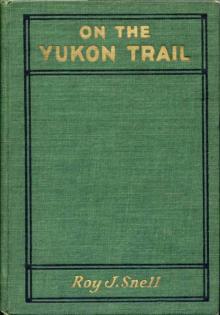 On the Yukon Trail
On the Yukon Trail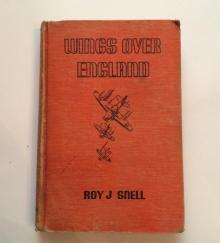 Wings over England
Wings over England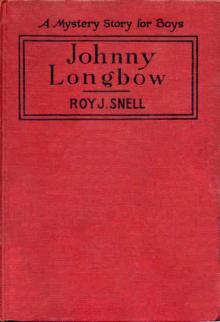 Johnny Longbow
Johnny Longbow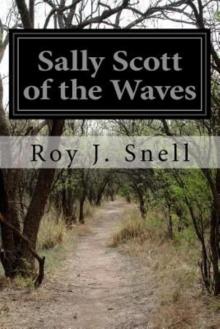 Sally Scott of the WAVES
Sally Scott of the WAVES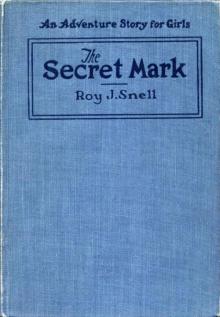 The Secret Mark
The Secret Mark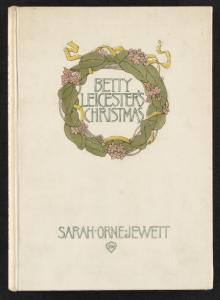 Betty Leicester's Christmas
Betty Leicester's Christmas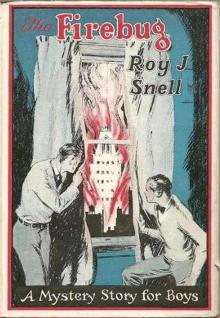 The Firebug
The Firebug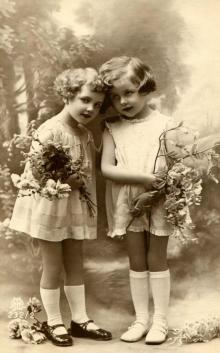 Minnie Brown; or, The Gentle Girl
Minnie Brown; or, The Gentle Girl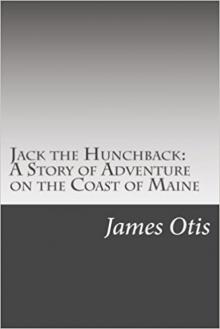 Jack the Hunchback: A Story of Adventure on the Coast of Maine
Jack the Hunchback: A Story of Adventure on the Coast of Maine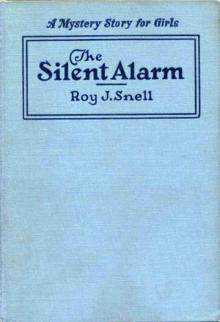 The Silent Alarm
The Silent Alarm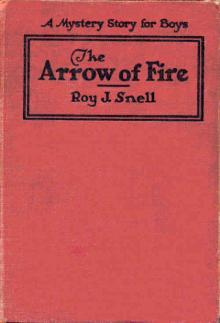 The Arrow of Fire
The Arrow of Fire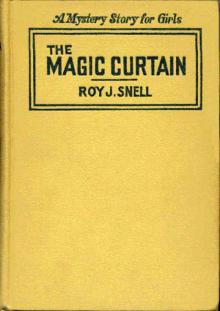 The Magic Curtain
The Magic Curtain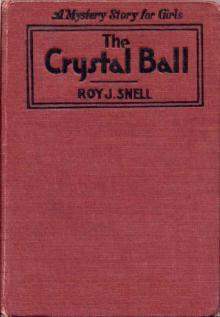 The Crystal Ball
The Crystal Ball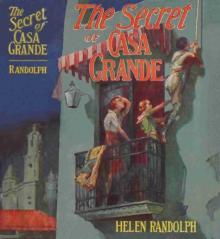 The Secret of Casa Grande
The Secret of Casa Grande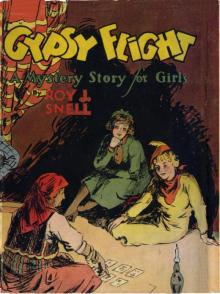 Gypsy Flight
Gypsy Flight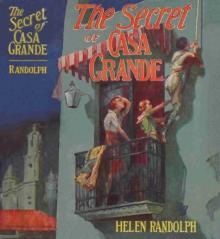 The Mystery of Carlitos
The Mystery of Carlitos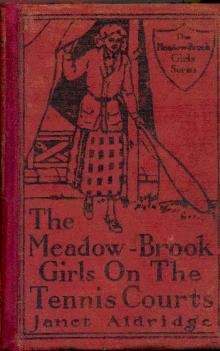 The Meadow-Brook Girls on the Tennis Courts; Or, Winning Out in the Big Tournament
The Meadow-Brook Girls on the Tennis Courts; Or, Winning Out in the Big Tournament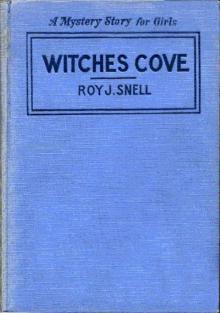 Witches Cove
Witches Cove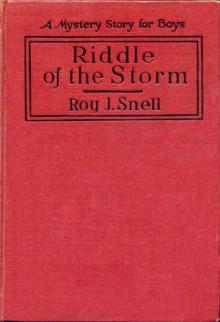 Riddle of the Storm
Riddle of the Storm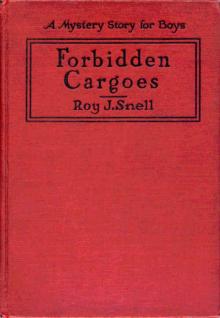 Forbidden Cargoes
Forbidden Cargoes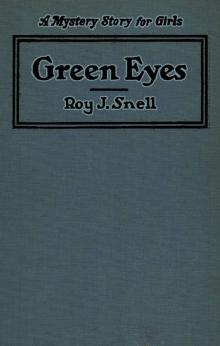 Green Eyes
Green Eyes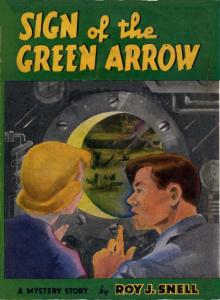 Sign of the Green Arrow
Sign of the Green Arrow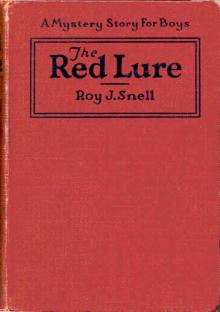 The Red Lure
The Red Lure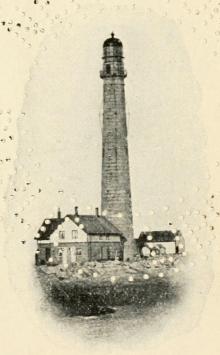 The Light Keepers: A Story of the United States Light-house Service
The Light Keepers: A Story of the United States Light-house Service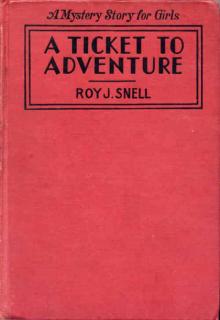 A Ticket to Adventure
A Ticket to Adventure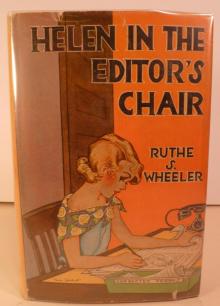 Helen in the Editor's Chair
Helen in the Editor's Chair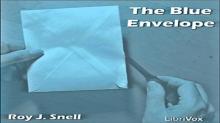 Blue Envelope
Blue Envelope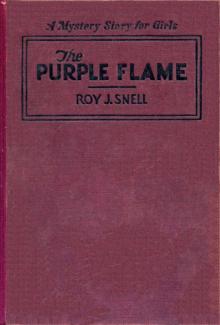 The Purple Flame
The Purple Flame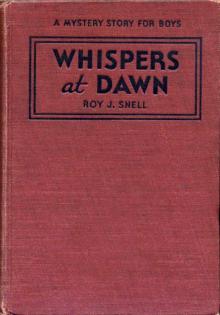 Whispers at Dawn; Or, The Eye
Whispers at Dawn; Or, The Eye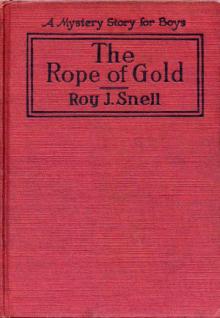 The Rope of Gold
The Rope of Gold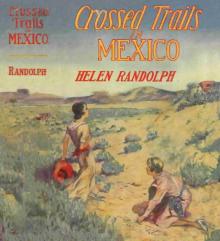 Crossed Trails in Mexico
Crossed Trails in Mexico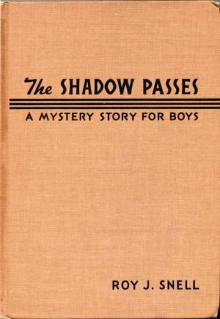 The Shadow Passes
The Shadow Passes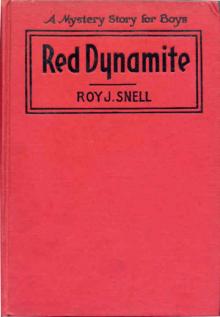 Red Dynamite
Red Dynamite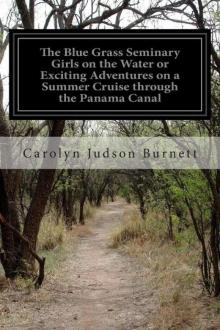 Blue Grass Seminary Girls on the Water
Blue Grass Seminary Girls on the Water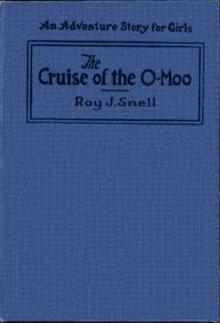 The Cruise of the O Moo
The Cruise of the O Moo